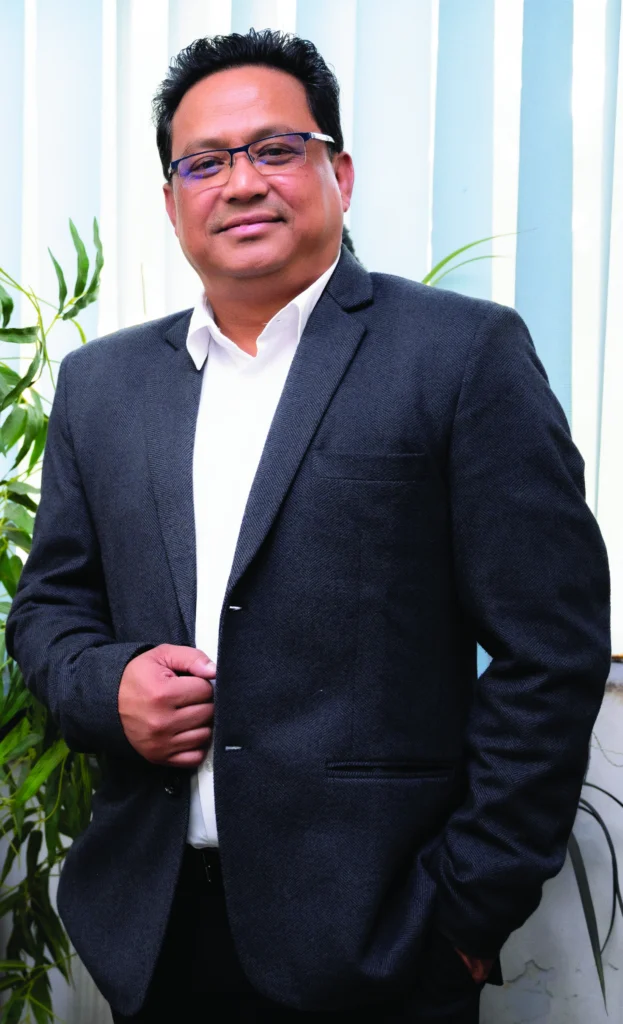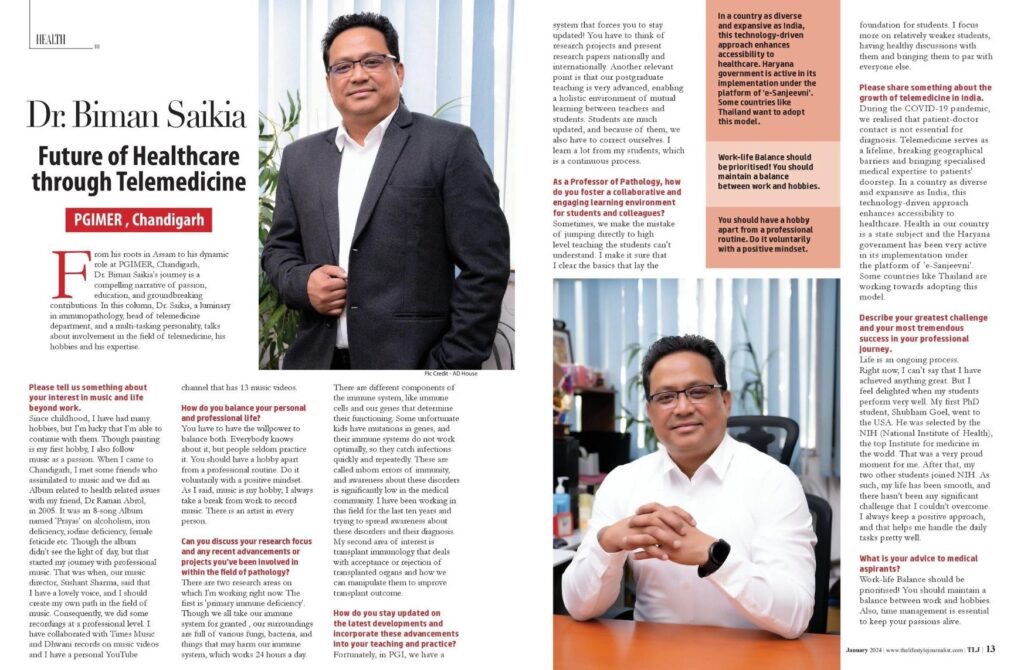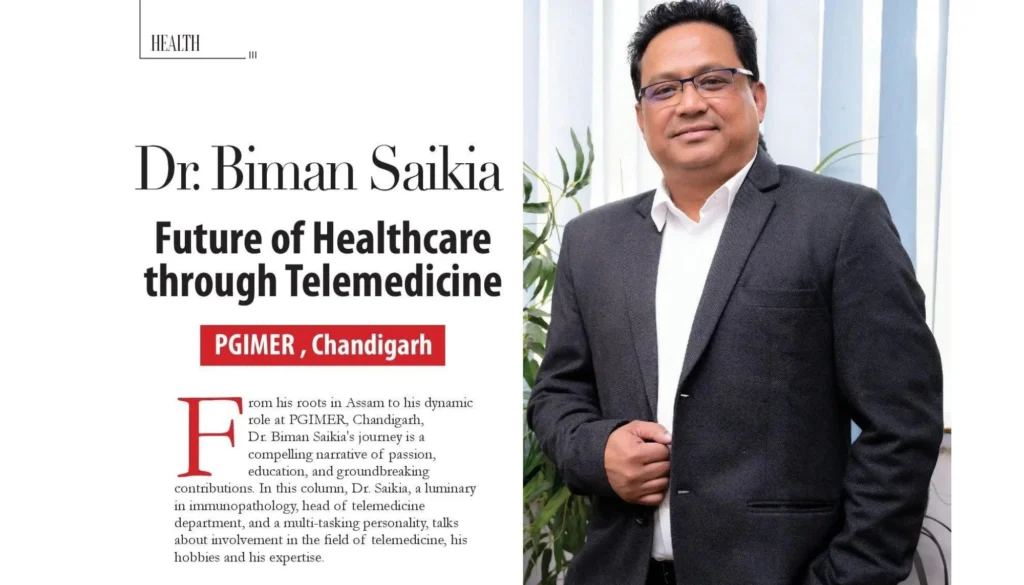Future of Healthcare through Telemedicine, PGIMER , Chandigarh
From his roots in Assam to his dynamic role at PGIMER, Chandigarh,
Dr. Biman Saikia’s journey is a compelling narrative of passion, education, and groundbreaking contributions. In this column, Dr. Saikia, a luminary in immunopathology, head of telemedicine department, and a multi-tasking personality, talks about involvement in the field of telemedicine, his hobbies and his expertise.

Can you discuss your research focus and any recent advancements or projects you’ve been involved in within the field of pathology?
There are two research areas on which I’m working right now. The first is ‘primary immune deficiency’. Though we all take our immune system for granted , our surroundings are full of various fungi, bacteria, and things that may harm our immune system, which works 24 hours a day. There are different components of the immune system, like immune cells and our genes that determine their functioning. Some unfortunate kids have mutations in genes, and their immune systems do not work optimally, so they catch infections quickly and repeatedly. These are called inborn errors of immunity, and awareness about these disorders is significantly low in the medical community. I have been working in this field for the last ten years and trying to spread awareness about these disorders and their diagnosis. My second area of interest is transplant immunology that deals with acceptance or rejection of transplanted organs and how we can manipulate them to improve transplant outcome.

How do you stay updated on the latest developments and incorporate these advancements into your teaching and practice?
Fortunately, in PGI, we have a system that forces you to stay updated! You have to think of research projects and present research papers nationally and internationally. Another relevant point is that our postgraduate teaching is very advanced, enabling a holistic environment of mutual learning between teachers and students. Students are much updated, and because of them, we also have to correct ourselves. I learn a lot from my students, which is a continuous process.
As a Professor of Pathology, how do you foster a collaborative and engaging learning environment for students and colleagues?
Sometimes, we make the mistake of jumping directly to high level teaching the students can’t understand. I make it sure that I clear the basics that lay the foundation for students. I focus more on relatively weaker students, having healthy discussions with them and bringing them to par with everyone else.
Please share something about the growth of telemedicine in India.
During the COVID-19 pandemic, we realised that patient-doctor contact is not essential for diagnosis. Telemedicine serves as a lifeline, breaking geographical barriers and bringing specialised medical expertise to patients’ doorstep. In a country as diverse and expansive as India, this technology-driven approach enhances accessibility to healthcare. Health in our country is a state subject and the Haryana government has been very active in its implementation under the platform of ‘e-Sanjeevni’. Some countries like Thailand are working towards adopting this model.
Describe your greatest challenge and your most tremendous success in your professional journey.
Life is an ongoing process. Right now, I can’t say that I have achieved anything great. But I feel delighted when my students perform very well. My first PhD student, Shubham Goel, went to the USA. He was selected by the NIH (National Institute of Health), the top Institute for medicine in the world. That was a very proud moment for me. After that, my two other students joined NIH. As such, my life has been smooth, and there hasn’t been any significant challenge that I couldn’t overcome. I always keep a positive approach, and that helps me handle the daily tasks pretty well.
What is your advice to medical aspirants?
Work-life Balance should be prioritised! You should maintain a balance between work and hobbies. Also, time management is essential to keep your passions alive.


